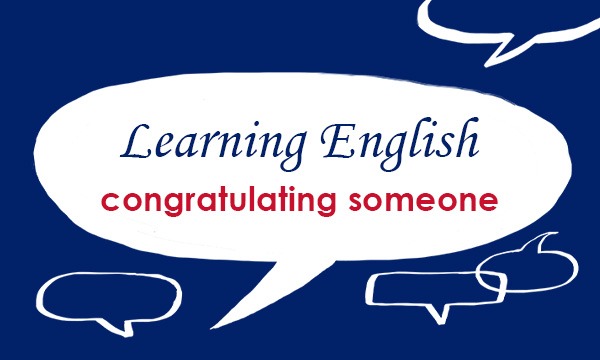
To show that you are pleased that something good has happened to someone, use Congratulations! If you want to congratulate someone with regard to something particular, use the preposition ‘on’.
You passed your exam? Congratulations!
Congratulations on your new job!
Congratulations on the birth of your baby son!
Congrats is used in informal language.
Congrats on your recent wedding to Dawn, by the way.
To show that you think someone has done something very well, use Well done!
Well done, Mercedes!
‘I got that job, by the way.’ ‘Well done! That’s great!’
‘Look, I’ve tidied up all those papers.’ ‘Well done!’
If you are talking to friends, you can use more informal language, such as Good job!, Nice one! or Way to go!
He shook my hand and said, ‘Well done, mate. Nice one!’
As he left, the fans broke into applause and someone called out ‘Way to go, Mike!’
Come back for more blogs on using English in everyday situations: https://blog.collinsdictionary.com/language-learners/learning-english/
All opinions expressed on this blog are those of the individual writers, and do not necessarily reflect the opinions or policies of Collins, or its parent company, HarperCollins.



